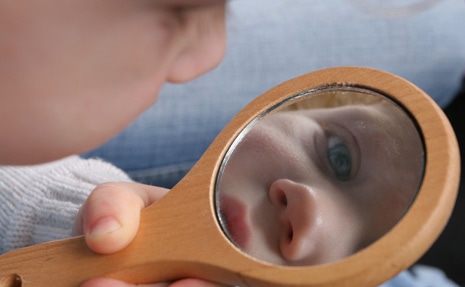 Unconditional self-respect is one of the keys to declaring your independence from stress and discovering a life of generous, effortless, gracious flow filled with faith, hope, prosperity, peace, and joy. Such respect begins with mindfulnessâcaring enough about myself and my experience to pay attention to what is happening and what I am feeling. If I donât recognize when Iâm feeling stressed, I canât do anything to change it.
Unconditional self-respect is one of the keys to declaring your independence from stress and discovering a life of generous, effortless, gracious flow filled with faith, hope, prosperity, peace, and joy. Such respect begins with mindfulnessâcaring enough about myself and my experience to pay attention to what is happening and what I am feeling. If I donât recognize when Iâm feeling stressed, I canât do anything to change it.
Respect is also about not beating myself up for past choicesâthings I thought, said, did, or didnât do. Itâs about knowing that I am doing the best I can with the love and light I have access to at the time. Every experience is an opportunity. As I am able to recognize and transform more of my fear-based limiting beliefs into love-based empowering truths, I gain access to greater wisdom, clarity, and confidence, moving myself further along my personal Journey to Wholeness. By learning to demonstrate unconditional respect for myself in every moment, I become more able to demonstrate it for others as well.
Respect is also about boundaries, being clear where mine end and yours begin. Many of us find it hard to set clear and healthy limits on what we will and wonât allow others to do to us. Even more of us have difficulty not violating othersâ boundaries.
Consider this example from my own life. On Monday night, my spouse comes home from work miserable about how his boss is treating him. It pains me to see my husband so unhappy. I listen patiently and sympathetically to sixty minutes of complaining. I tell him exactly what he needs to do. He doesnât do it. Tuesday night, he comes home singing the second verse of the boss abuse song. I listen less patiently and repeat, with additional rationale, what I told him to do the night before. He shuts down and retreats to his den to watch football. Wednesday night, same song, third verse. This time I donât listen at all, blow a gasket, and tell him to stop being a wimp. He demonstrates just how much of a wimp he isnât by getting royally annoyed with me and storming off to the den. I demonstrate just how much of a wimp I am not by following him into the den and repeating my suggestion with even greater volume and specificity, including what he can do with the horse he rode in on. The good newsâmy husbandâs boss is now completely off the hook because we are now so angry at each other that what his boss is doing to him pales in comparison.
Some of you are taking my side: Sheâs a professional management consultant and life coach with more than thirty yearsâ experience. What moron wouldnât immediately implement anything she suggests? Others are taking my husbandâs side: Sheâs a pushy overbearing know-it-all whoâs taken three months to write the final three chapters of her book. Why doesnât she stop sapping his self-confidence and mind her own business? To both sides I say, âBlah, blah, blah.â
The root of the problem is not whether my suggestions were wise. The issue is the nature of the core energy underneath me providing suggestions in the first place. Input stemming from a supposed âdesire to helpâ becomes interference when it is fueled by fear in the form of anxiety, self-doubt, avoidance, or arrogance. Anxiety is when I canât stand whatever pain I am choosing to feel over the choices he is making, and in order to stop my pain, I need to get him to choose a different path. Self-doubt is when I fear that if he isnât making the same choices for his life that Iâm making for mine, maybe Iâm wrong. Avoidance is when there are aspects of myself Iâm not yet willing to address, so I distract myself by focusing my need for personal growth on him instead. Arrogance is when I dare to presume that I can run his life better than he can, despite the fact that Iâve not walked even one mile in his shoes. The common denominator in each case is that fear, not love, is the core energy fueling my suggestions.
Read part 2 of this article for additional insights into the nature of respect.
© Copyright 2013 DJW Life Coach LLC. All rights reserved.
About the Author
What’s love got to do with minimizing stress and getting unstuck? Everything, according to empowerment coach and inspirational speaker Deborah Jane Wells, author of Choose Your Energy: Change Your Life! During her 30 years as an organization transformation consultant, Deborah served as a senior partner in four of the world’s largest, most prestigious global professional services firms. In 2005, she took a five-year sabbatical to find healing and peace because non-stop work had taken its toll. Her recovery from burnout, including a sustained 80-pound weight loss and freedom from 10 years of debilitating depression, led to finding her purpose guiding others on their journeys. Through healing and self-exploration, she discovered that loving yourself unconditionally is the key to transforming your personal life, your work, and the world. Deborahâs books, blog, radio show, and signature coaching programs help individuals and organizations harness that same transformative power of love to turn unexplored possibilities into fulfilling realities and step into their greatness. Learn more at the Deborah Jane Wells Website.





